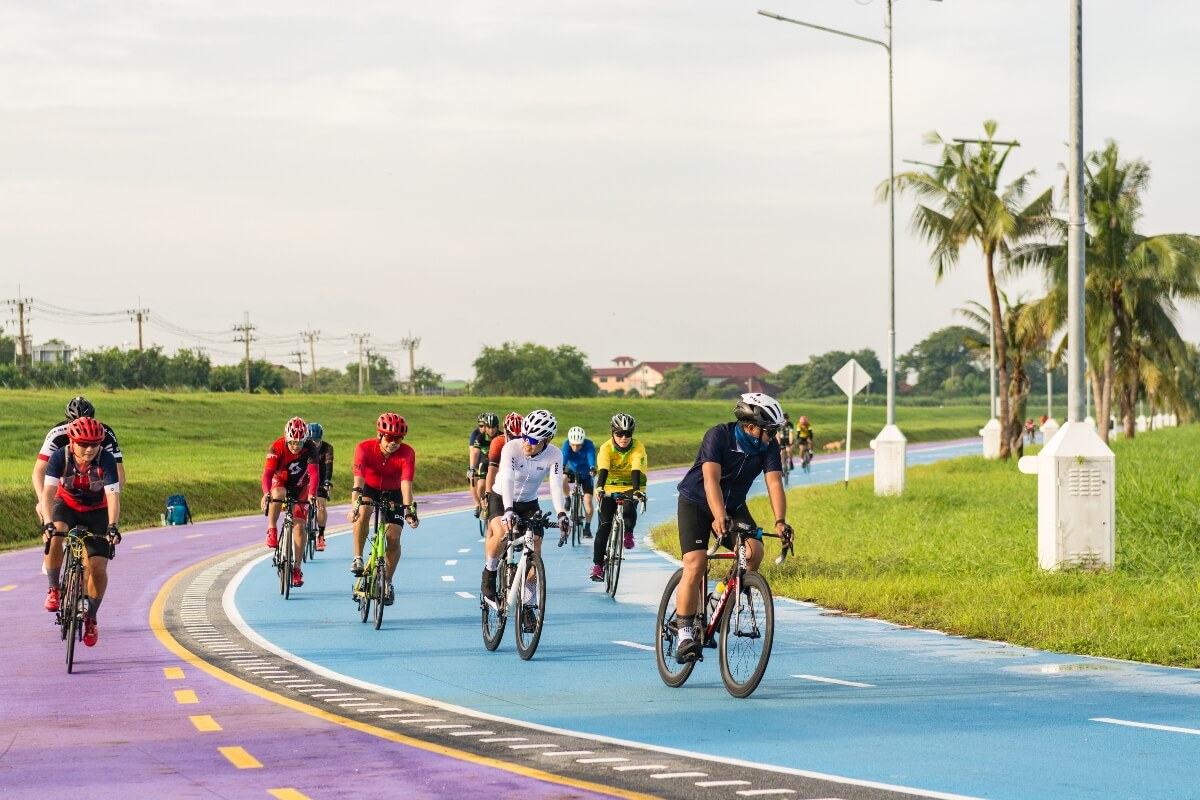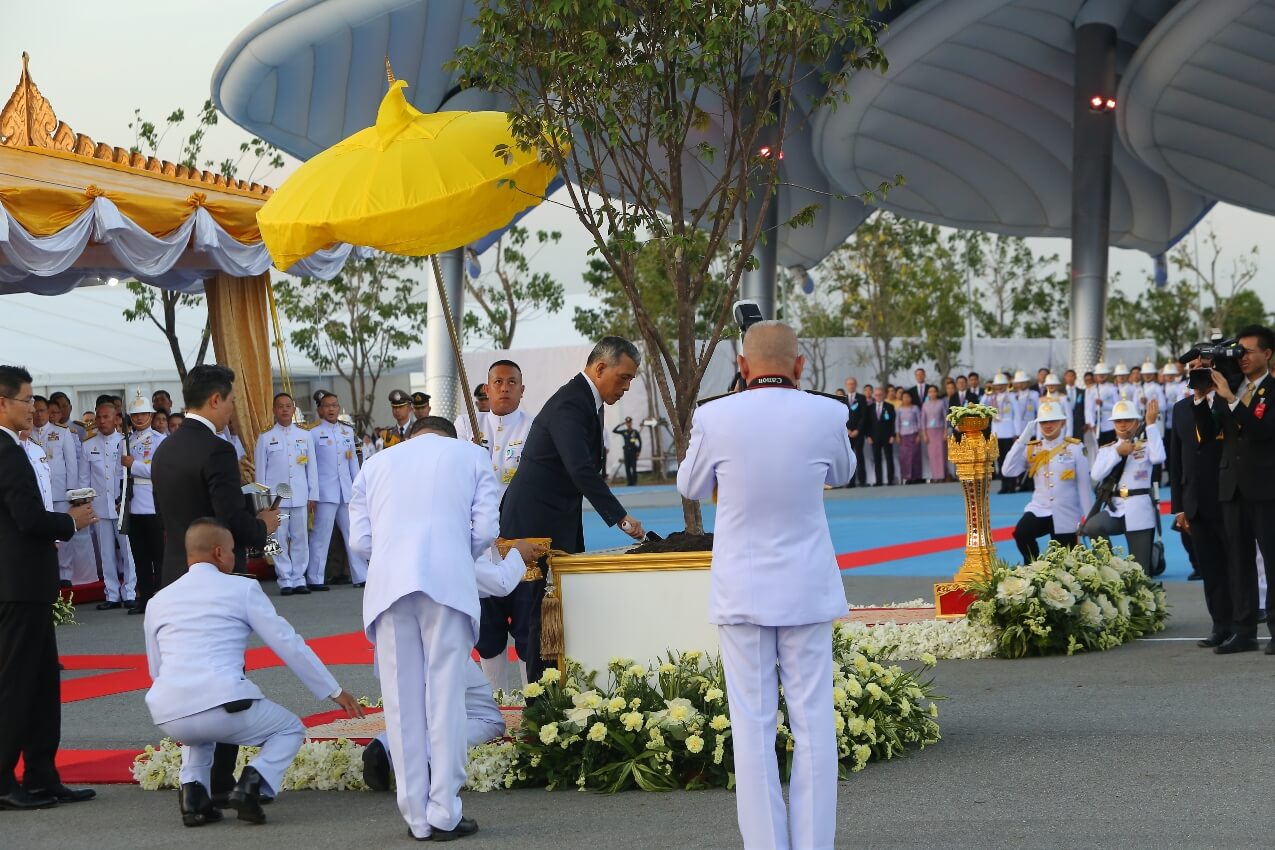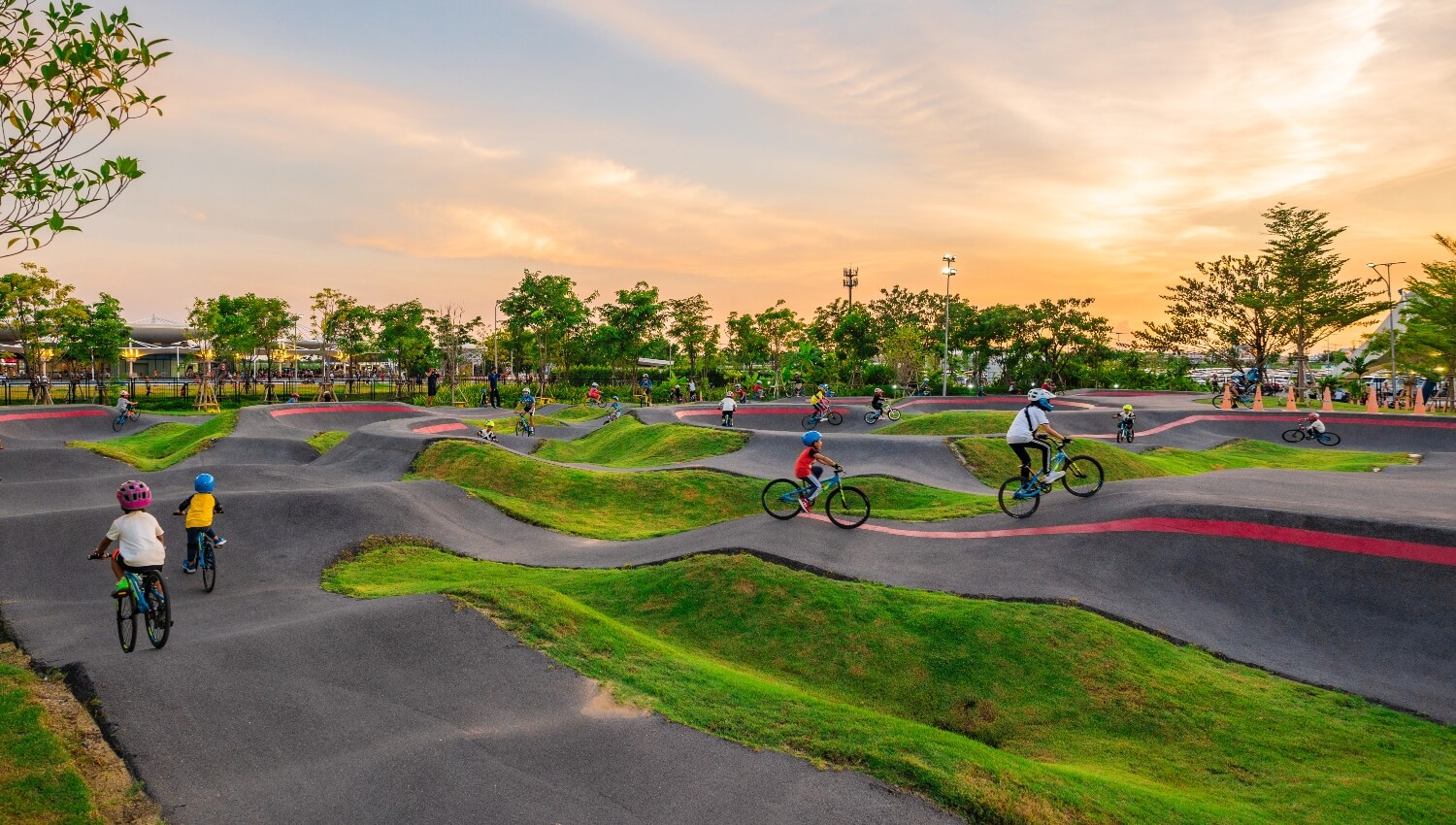With a population of 10 million, Bangkok has a mere 6.8m2 of public green space per resident, lagging behind the World Health Organization’s recommended availability of 9m2, and dismally behind the average of 39m2 across 22 major Asian cities.[1]
As the health benefits of outdoor physical activity become more apparent, particularly in the aftermath of Covid-19, demand for dedicated spaces is growing. In 2018, Bangkok welcomed the opening of the Happy and Healthy Bike Lane, a 23.5km bike lane open to the public for free, where everyone is welcome.
The success of this project is in no small part thanks to the vision of Dr. Vichit Suraphongchai, Chairman of the Board at Siam Commercial Bank. Under his guidance, the Bank took on the bike lane project as part of its corporate social responsibility (CSR) efforts.
CAPS sat down with Vichit to understand what drives him, his approach to CSR, and strategies for bringing partners on board to execute successful projects.
CAPS: Thank you for taking the time to speak with us today. Can you tell us more about the Happy and Healthy Bike Lane? How was it that you came to be involved in this project?

Vichit: This project is very dear to my heart because biking is a personal passion and I have biked many lanes around the world.
The track was initially set up in 2014 and known as Green Lane because it was painted green. I went to ride there a few months after it had opened and saw that it was in very poor condition. The nature of the soil underneath is alluvial: this means the soil becomes dislodged easily causing cracks and faults in the track. This affects the quality of cycling and can also cause accidents.
I felt there was immense scope to improve the quality of the track. Once the track had been rebuilt and reinforced, it could be opened to the public free of cost. And the location, near the airport, was ideal because there are no big buildings around. When you ride there, it feels like you’re riding in the countryside. It’s beautiful and you can see airplanes taking off and landing.
I knew that this would make a fantastic CSR project and who better than Siam Commercial Bank to lead the initiative!
CAPS: You had to convince other partners, including corporates, to come on board this initiative. How did you do that?
Vichit: Right from the start, I knew that we needed partnerships to execute this project successfully, both with the airport authority and with other corporations. Over the course of several meetings and conversations, I painted a clear vision for a world-class bicycle lane. I also emphasized that the project would be funded entirely through CSR. There was some initial skepticism, but finally, the airport authority agreed to collaborate and granted a 10-year concession for the land, both to build the bike track and for a bike center close by. Of course, we had to agree to several conditions to ensure that the land would be used purposefully and that airport security would not be compromised in any way.

Siam Commercial Bank was willing to contribute ฿600 million (approximately US$18 million) but could not foot the bill for the renovation of the entire 23.5km stretch of the track by itself. I approached several large corporations here in Thailand and asked them for a share of their CSR budget. I asked for a 50% upfront payment to cover the costs of capital expenditures like tracks, facilities and infrastructure, and the remainder in installments to pay for operating expenses over the 10-year concession term.
Many corporates in Thailand were eagerly looking for worthwhile projects that create long-lasting impact. Around the time I approached them with my vision, cycling was getting more traction because it is an outdoor activity that’s great for health. That was certainly helpful.
Today, all my partners are very pleased with the results. They can see that their money was well spent and has contributed to making people happy, and so they are proud of their contribution.
CAPS: Through the bike lane, you also created a space for the community. How did you make that happen?
Vichit: When we started, the 23.5km bike lane (painted blue) was mostly used by ardent cyclists. As more and more cyclists, both experienced and beginners, started using the track, we realized that the capacity of the blue track was not enough. So we added a second bike lane (painted purple) for advanced riders, as well as a shorter 1.5km track for beginners. We also added a bike rental facility, a kid’s bike park, a jogging lane, and a food outlet. To ensure the safety of visitors, we also built a clinic on site.

I always knew that this place was not just meant to be a bike track. What we’re truly proud of is that the project has become a community destination. People come here to meet like-minded people, meet old friends, and make new ones. With all the added facilities, the whole family can come and have a great time, from young children to the oldest generation. Today, we have 20,000-30,000 riders a week including older folks, children, women, and professional cyclists.
It was always the vision that the bike lane should not just be about encouraging people to exercise, but to do so in an inclusive manner, regardless of gender, age, biking experience or ability to pay. The bike lane is now a landmark in Thailand. Its inauguration was presided over by His Majesty the King of Thailand.
CAPS: What advice do you have for others who want to execute impactful CSR projects?
Vichit: The first thing I would say is that you have to dream big. Even if there are naysayers and people think you are not being realistic, you still have to believe in your dream.

Once you have the belief that something is a worthwhile project, the next step is presentation. Convincing partners to get on board requires the ability to pitch your vision and explain the impact you are going to have in clear terms.
A lot of companies, especially those with younger management, want to give back to society. They are keen to do good as long as they find impactful and worthwhile projects and a person that they can trust. Building these relationships, expanding your network and finding ways to build trust, are key to securing CSR funding in Thailand.
And of course, once you execute one project well, it really adds to your track record and credibility. From there on, the path becomes much easier for future projects.
[1] United Nations Climate Change. The Greening of Bangkok. Retrieved December 9, 2021, from https://unfccc.int/blog/the-greening-of-bangkok

